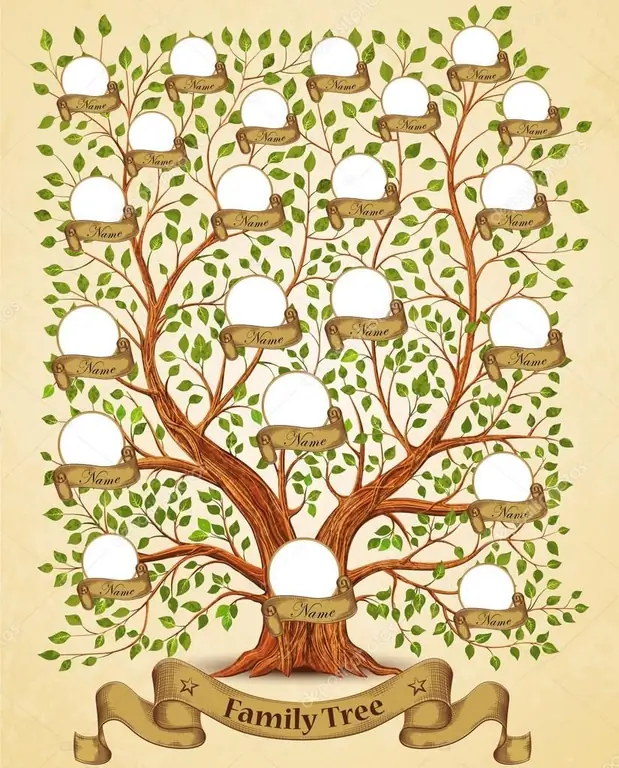- Author Antonio Harrison [email protected].
- Public 2023-12-16 07:44.
- Last modified 2025-01-22 21:44.
Learning about your family history is not easy and requires patience and skill. However, the result is worth it. Drawing up a family tree will help to remember the roots for more than one generation of the family.

Instructions
Step 1
The first thing to do is to put family documents in order. You don't need to spend a lot of time and money for this. It is enough to arrange documents by types and folders. For example, documents with act records (certificates of birth, marriage, death) in one, documents on property rights in another, etc. and remember that each document is important to the family history.
Step 2
Talk to your relatives. Most likely they know a lot of interesting information that is not documented. It is especially interesting to listen to the memories of older family members. Perhaps some of them or their parents participated in important events for the history of the country, for example, in the Great Patriotic War of 1941-1945. To record memories, you can use a dictaphone, and then it is better to decipher the recordings so that they are preserved not only in electronic form, but also on paper.
Step 3
Organize all the knowledge gained about the family. For example, create small background cards for each family member. In them, you can indicate all the known facts, as well as mark for yourself what else I would like to know.
Step 4
The next step for drawing up a family tree after finding out all the available information about relatives can be an appeal to the archives. Keep in mind that each archive is specialized in a different topic. So, in the archives of the registry office, you can find information about the registration records of birth, marriage and death. Information about participation in hostilities, for example, in the Great Patriotic War - in the Central Archives of the Ministry of Defense of the Russian Federation.
Step 5
To request information about act records in the archives of the registry office or in the state historical archives, it is necessary to indicate the surnames, names and patronymics of the requested persons, as well as the approximate years of the event (preferably within 1-3 years) and the place where it happened. As a rule, this applies to documents of the second half of the 19th century, Soviet and modern times. This will help such documents as registers and direct deed records. Be prepared that if 75 years have not passed after the event you are looking for, the institution's staff may request documents confirming the relationship.
Step 6
Earlier information about the composition of the family can be found in revision tales and confessions. In this case, the search may be complicated by the fact that such documents will not contain a surname. So, for example, Ivan Prokofievich can be written as Ivan Prokofiev. The same is found in earlier registers of birth.
Step 7
Documents about the profession of relatives can be found in the subordinate archives of the institutions where they worked, as well as in the state historical archives. So, if the ancestor was a judge in the pre-revolutionary war, judicial funds will help. If the priest - the funds of the spiritual consistories of the regions, etc.
Step 8
Today, in the age of Internet technologies, it is quite simple to find out where the documents you are interested in may be. It is enough to enter a query in the search engines, and, as a rule, you can find the answer. There are forums and groups of researchers, among which you can find those who have already been interested in a particular issue.
Step 9
Remember that it is your right to make inquiries and consult the archives. As a rule, requests are made in a free form, they can be sent by e-mail and in writing. In any case, even if the answer from the archive is negative, your appeal will be answered.






